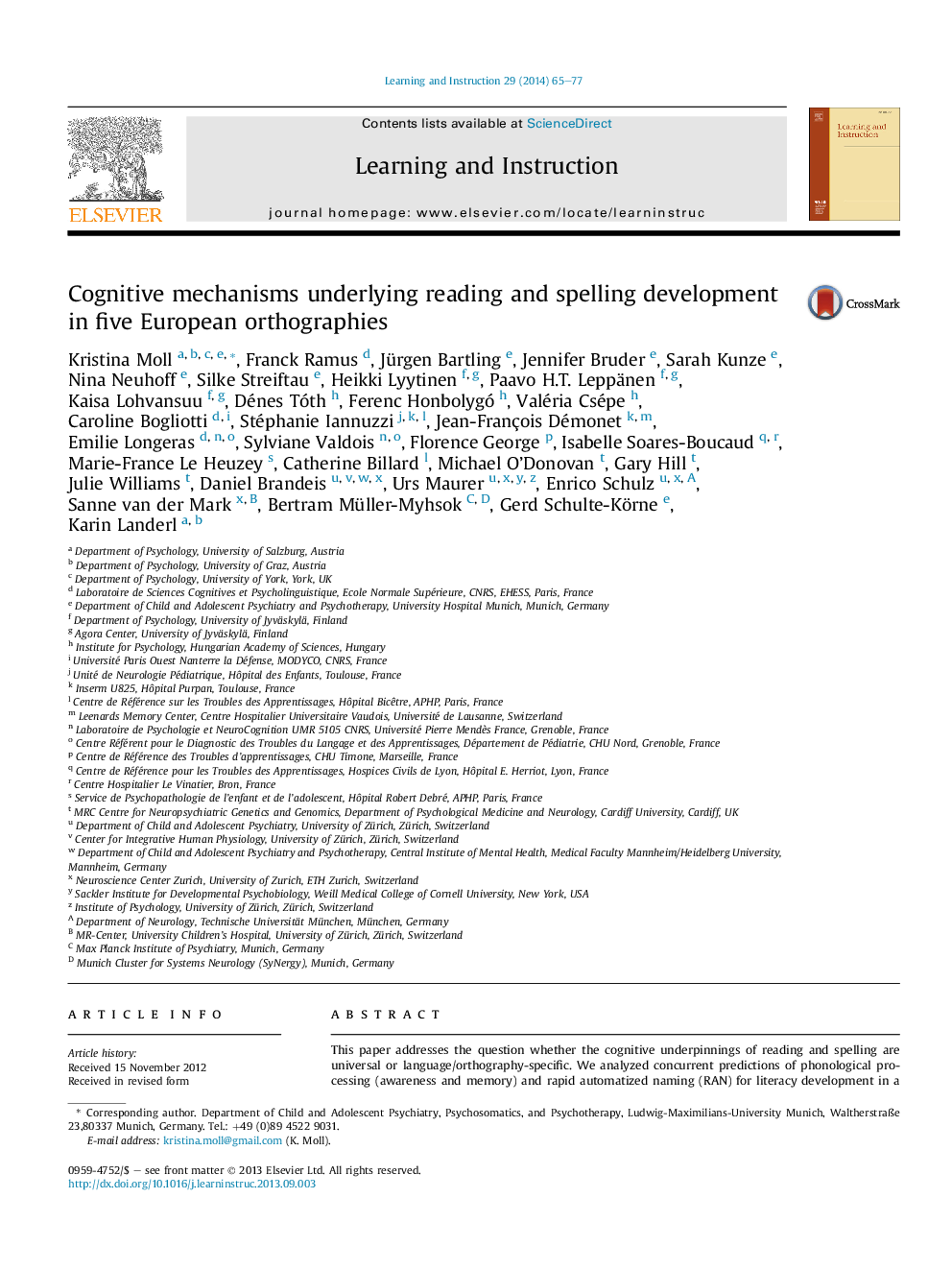| Article ID | Journal | Published Year | Pages | File Type |
|---|---|---|---|---|
| 6845827 | Learning and Instruction | 2014 | 13 Pages |
Abstract
This paper addresses the question whether the cognitive underpinnings of reading and spelling are universal or language/orthography-specific. We analyzed concurrent predictions of phonological processing (awareness and memory) and rapid automatized naming (RAN) for literacy development in a large European sample of 1062 typically developing elementary school children beyond Grade 2 acquiring five different alphabetic orthographies with varying degrees of grapheme-phoneme consistency (English, French, German, Hungarian, Finnish). Findings indicate that (1) phonological processing and RAN both account for significant amounts of unique variance in literacy attainment in all five orthographies. Associations of predictors with reading speed, reading accuracy, and spelling are differential: in general, RAN is the best predictor of reading speed while phonological processing accounts for higher amounts of unique variance in reading accuracy and spelling; (2) the predictive patterns are largely comparable across orthographies, but they tend to be stronger in English than in all other orthographies.
Keywords
Related Topics
Social Sciences and Humanities
Psychology
Developmental and Educational Psychology
Authors
Kristina Moll, Franck Ramus, Jürgen Bartling, Jennifer Bruder, Sarah Kunze, Nina Neuhoff, Silke Streiftau, Heikki Lyytinen, Paavo H.T. Leppänen, Kaisa Lohvansuu, Dénes Tóth, Ferenc Honbolygó, Valéria Csépe, Caroline Bogliotti, Stéphanie Iannuzzi,
